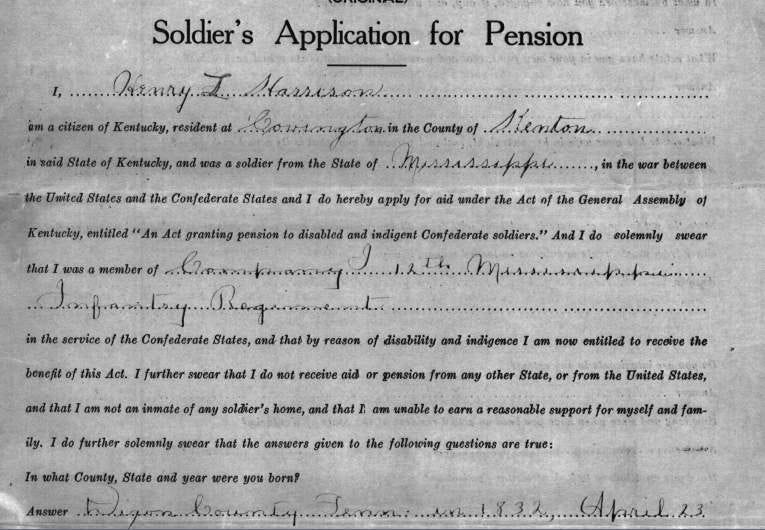The Peculiar Tale of The Spy Harrison
The Confederate Spy Who Changed The Course Of Civil War Spent Final Days In Tri-State
At approximately ten o’clock in the evening on June 28, 1863, Henry Thomas Harrison, a Confederate spy, raced into General Longstreet’s headquarters near Chambersburg, PA. Harrison came with incredible details about locations of Union troops who were advancing north around Frederick, MD. He also reported that General Meade had recently been made commander of The Army of the Potomac.
Longstreet was stunned at this intel, so stunned in fact that he sent Harrison to relay the information to General Robert E. Lee, who then made the decision to focus his army on Gettysburg. The rest is history.
And if you visit section 18, plot 37 at Highland Cemetery in Ft. Mitchell, KY, you will see the gravestone of one Henry Thomas Harrison, the spy some historians say changed the course of the Civil War.
Henry Thomas Harrison was born on April 23, 1832, in Nashville, Tenneessee. His father Henry Horace Harrison was a steamboat captain in Nashville for many years. Henry Thomas's great grandfather Thomas Harrison was born in England in 1743 and and served in Washington's army in the Sixth Independant Maryland Militia Company of Dorchester Co., Maryland, during the Revolutionary War.
When the Civil War broke out, Henry enlisted in Company I, Sartartia Rifles, of the 12th Mississippi Infantry Regiment of Volunteers, at Corinth, Mississippi. The 12th Mississippi was assigned to the Second Brigade of the First Corps in Virginia. This is where Harrison learned the scouting and spying trade, moving between Manassas Junction and the Potomac.
Harrison was discharged in November of 1861, but shortly thereafter was recruited as a spy by Confederate States of America Secretary of War, James Seddon. Harrison met General Longstreet in April 1863 at the Battle of Suffolk which began a partnership that lasted the rest of that fateful summer. Harrison and Longstreet parted ways in early September. He remained in Virginia and married Laura Broders later that month.
After the war, in the spring of 1866, when Laura was seven months pregnant, Harrison abandoned his wife, telling her he was going to Montana in search of gold. After not hearing from him after 10 years, she obtained a court decree that Harrison was legally dead.
Suddenly, in 1900, Harrison reappeared in Virginia looking for his family. Those left in Fairfax county wanted nothing to do with him, or didn’t believe it was actually him. With no place to go, Harrison connected with some wartime contacts in Cincinnati, where he found a job with Christian ministers who operated a municipal reform league. His duty was to observe businesses open in violation of "Sunday" laws and have warrants made for their arrest. (“Sunday Laws” or “Blue Laws” were put in place in some locales that attempted to keep people from pursuing activities that would keep them from church.)
In 1905, Henry briefly moved to Dayton, Ohio, where he married a woman named Lucretia. Within a few years, he abandoned her and moved back to Cincinnati.
In 1912, Kentucky passed a law that provided for the State to pay pensions to Confederate soldiers. Harrison quickly moved from the Cincinnati hotel where he was residing to an apartment at 35 East 4th St. in Covington, Kentucky. (Today, a PNC Bank sits on the spot where his apartment was.) His application was accepted and he lived out the last 9 years of his life in Covington, passing away in 1923 at the age of 91.
Harrison’s role was largely a mystery until the mid 1980s when historians were able to piece together his story. In 1993, actor Thomas Cooper Huckabee was cast to play Henry Thomas Harrison in the TNT miniseries Gettysburg.








